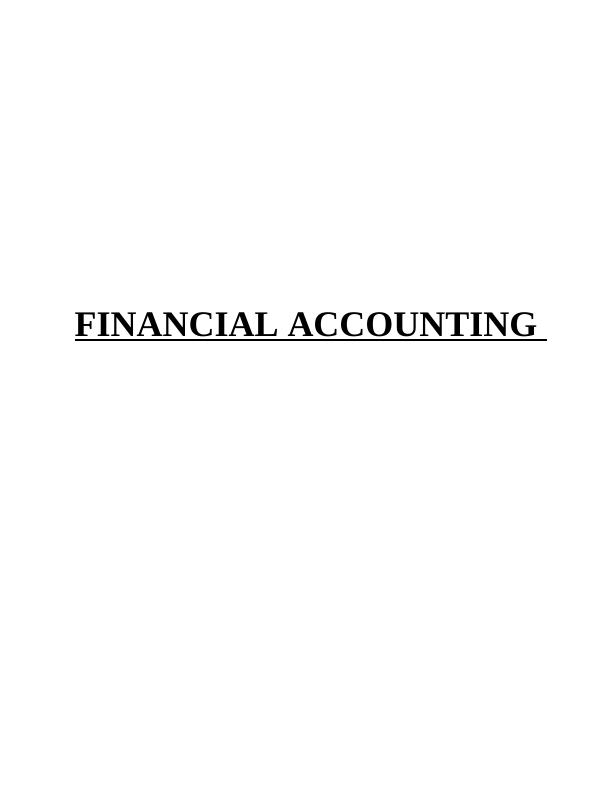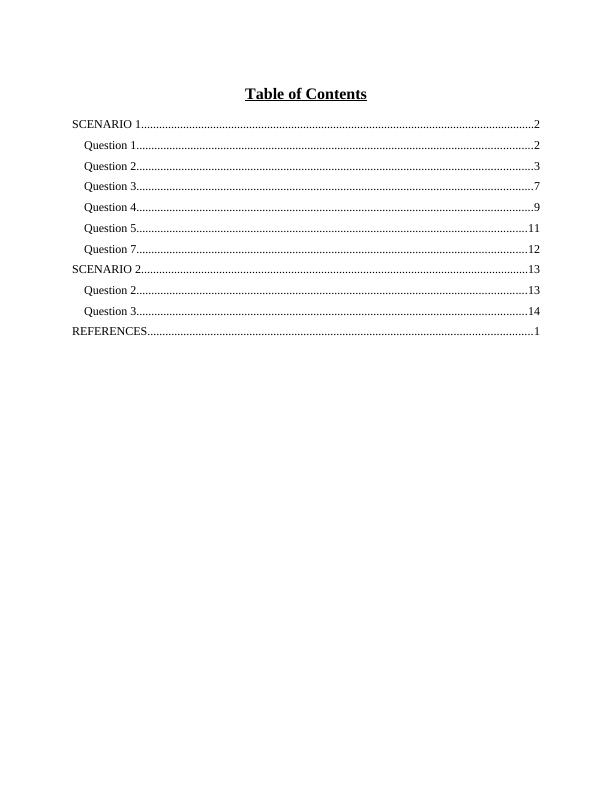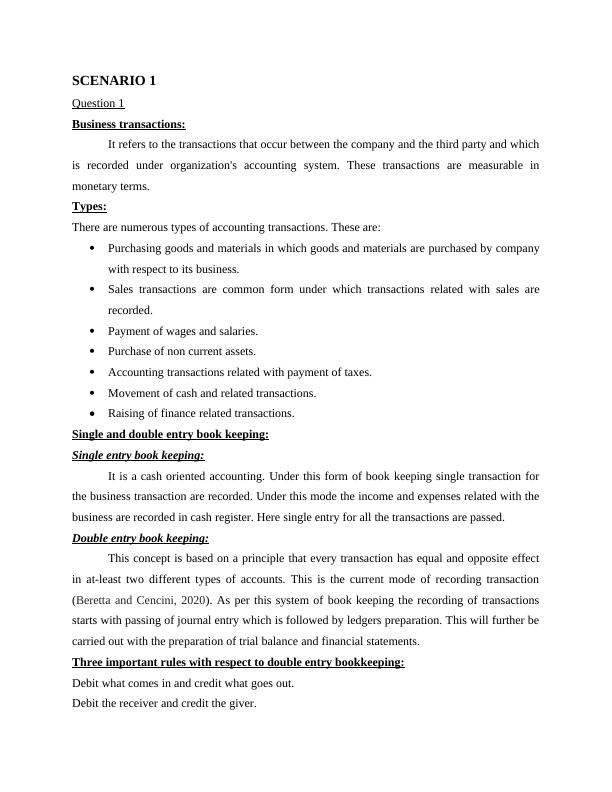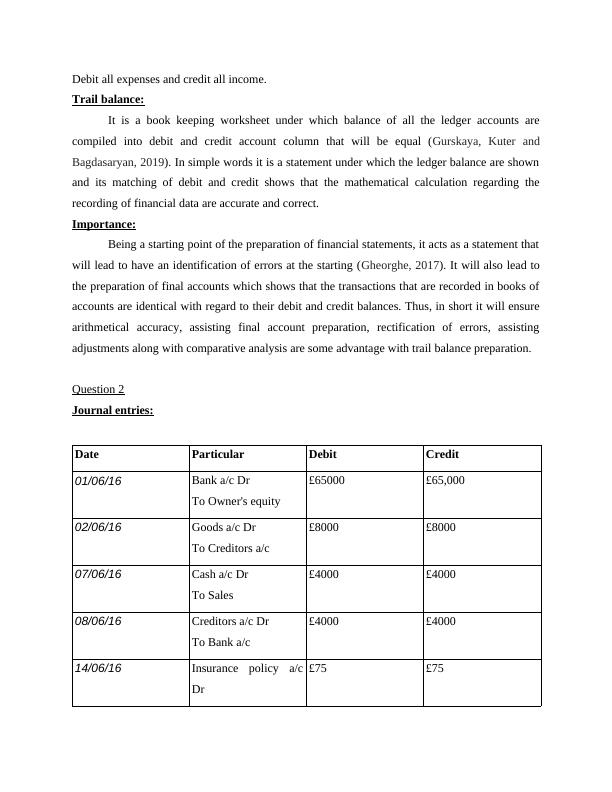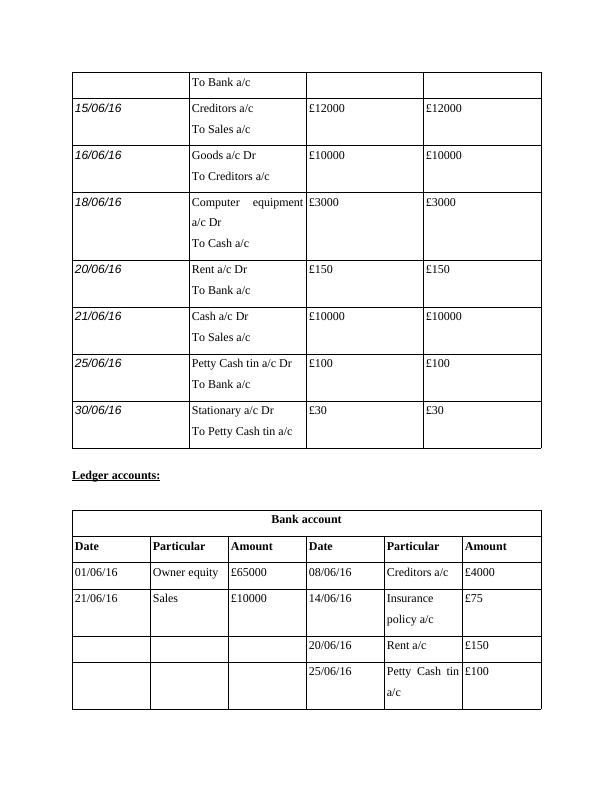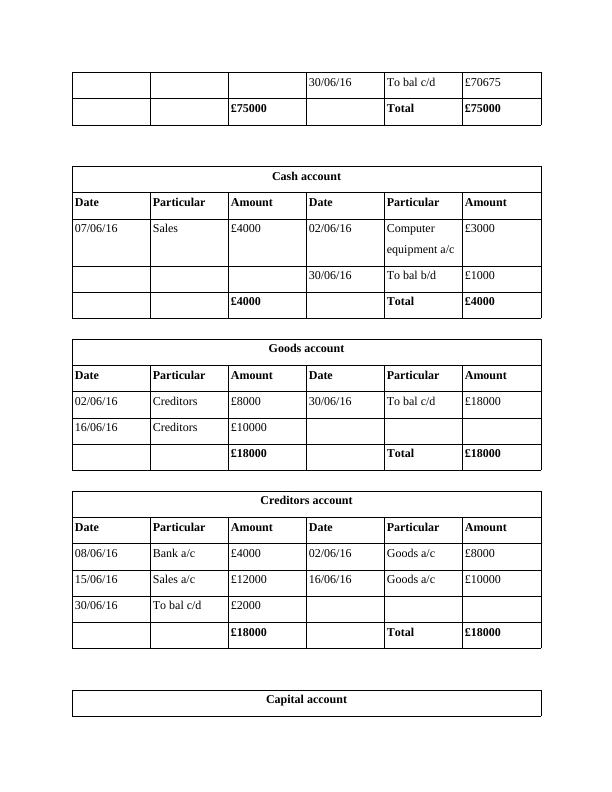Financial Accounting: Transactions, Bookkeeping, Journal Entries, Financial Reports, Principles
25 Pages4870 Words184 Views
Added on 2022-11-25
About This Document
This document provides an overview of financial accounting, including business transactions, single and double entry bookkeeping, journal entries, financial reports, and principles of accounting. It covers topics such as types of business transactions, trail balance, journal entries, ledger accounts, difference between financial reports and statements, and principles of accounting. The document is relevant for students studying financial accounting in various courses and programs.
Financial Accounting: Transactions, Bookkeeping, Journal Entries, Financial Reports, Principles
Added on 2022-11-25
ShareRelated Documents
End of preview
Want to access all the pages? Upload your documents or become a member.
Financial Accounting and Its Importance Doc
|12
|2928
|98
Different Types of Business Transactions and Accounting Principles
|29
|4091
|320
Accounting: Business Transactions, Financial Statements, Fundamental Principles
|26
|4285
|155
Financial Accounting: Concepts and Principles
|25
|4323
|68
HNBS 310 Financial accounting (1&2) TABLE OF CONTENTS INTRODUCTION 3 PROJECT 13 Financial accounting (1&2)
|10
|2269
|296
Financial Accounting: Principles, Transactions, and Statements
|31
|4629
|327

